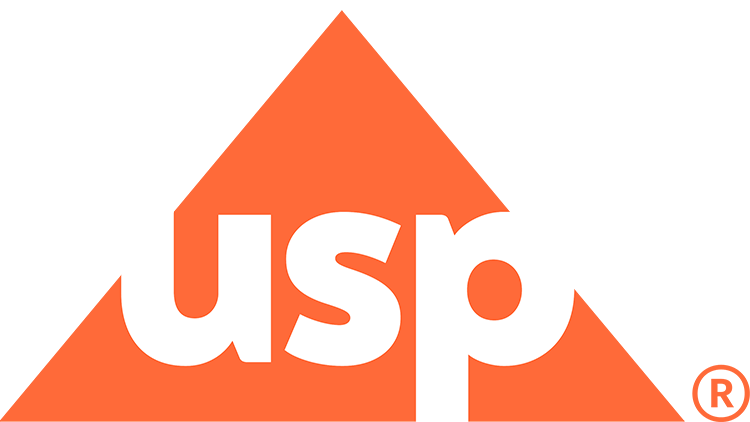
Study Misinterprets Heavy Metal Levels in Prenatal Vitamins, Causing Unnecessary Concern

Key Takeaways
- A study misapplied USP standards, inaccurately reporting excessive heavy metals in prenatal vitamins, causing unnecessary alarm among pregnant women.
- The Council for Responsible Nutrition confirmed that heavy metal levels in prenatal vitamins are within acceptable limits, correcting the study's error.
The inaccurate claim that these products pose a heavy metal risk is potentially detrimental, as it could discourage pregnant women from using vital prenatal supplements.
A recent
“As we understand it, the researchers made an inadvertent error by using USP standards that were intended really for raw materials, and looked at the allowable levels of heavy metals, looking at the mcg per gram of the raw material. They applied that as if it were mcg per daily dose of the finished product. What that led to was a misreporting that a number of these products had levels of heavy metals and contaminants in them that exceeded USP standards, when in fact they did not,” said Steve Mister, president and CEO of CRN, in an interview with Pharmacy Times®.
This error led to an inaccurate assessment of prenatal product safety, falsely indicating that many products contain excessive heavy metals, while in reality, the levels of these contaminants are within acceptable limits.3
“At this point we have no reason to think it was anything other than an inadvertent error or misuse of the standards, but it's important now that we correct that so that consumers are not unnecessarily alarmed,” said Mister.
High exposure to the heavy metals in pregnancy have been linked with adverse birth outcomes, causing anxiety among many women taking prenatal vitamins.1 The inaccurate claim that these products pose a heavy metal risk is potentially detrimental, as it could discourage pregnant women from using vital prenatal supplements, thereby jeopardizing both their own health and the well-being of their unborn children.3
“This has really rattled consumers and given them the false impression that many of their prenatal vitamin products might contain excessive levels of heavy metals. I think that's putting a lot of anxiety and stress on [sic] young women who are pregnant at a very vulnerable time in their lives, when they're very worried about doing everything right for their unborn baby,” said Mister.
Additionally, Mister addressed the other side of the study that evaluated the levels of choline and iodine in the prenatal vitamins, which demonstrated an insufficient amount of recommended nutrients listed in the product.1,3
“I think the study may have unjustly concerned women there because they note that the products did not necessarily have the full recommended amounts for daily intake of choline and iodine. The mistake that the researchers make there is this assumption that the only place that young women would be getting these 2 essential nutrients was from their supplement. These are dietary supplements — they're not substitutes for eating healthy, particularly during pregnancy,” said Mister.
Foods that can be paired with prenatal vitamins that are high in choline include organ meat, fish, caviar, beef, chicken turkey, whole eggs, cottage cheese, shiitake mushrooms, soybeans, wheat germ, cruciferous vegetables, almonds, lima beans, red potatoes, kidney beans, and quinoa. Additionally, foods high in iodine include seaweed, kombu kelp, wakame, nori, cod, dairy, iodized salt, shrimp, tuna, eggs, prunes, and lima beans.4,5
“What happens is it's the combination of what they're getting from the supplement and what they should be getting from their diet that make sure that they're getting to the recommended levels. So even in that regard, I think pharmacists can reassure pregnant women that you're probably not getting enough from the food you're eating, but you are getting some of these nutrients from the food you're eating, and having that prenatal vitamin is just a way to supplement that and assure that you're getting to the recommended levels,” said Mister.
CRN emphasized that they are not piling on the researchers and suggesting that the error was intentional but rather want to lessen the anxieties caused by the flaw in research.
“I think pharmacists are in a great position, because they do have that interface directly with consumers, including many pregnant women who turned to their pharmacist for good advice. First of all, it's important for the pharmacist to see the correction, to understand that the original numbers were inaccurate, and to reassure young women who are buying prenatal vitamins, that these products are safe," said Mister.
REFERENCES
1. Ferruggia K. Study Shows Choline and Iodine Are Missing Links in Prenatal Supplements. Pharmacy Times. News release. Updated January 2, 2025. Accessed January 3, 2025. https://www.pharmacytimes.com/view/study-shows-choline-and-iodine-are-missing-links-in-prenatal-supplements .
2. USP statement on prenatal multivitamin study. USP. News release. December 23, 2024. Accessed January 3, 2025. https://www.usp.org/news/usp-statement-on-prenatal-mulitvitamin-study .
3. Flawed study on prenatal vitamins fuels misplaced anxiety among pregnant women. CRN. News release. December 24, 2024. Accessed January 3, 2025. https://crnusa.org/newsroom/flawed-study-prenatal-vitamins-fuels-misplaced-anxiety-among-pregnant-women .
4. 16 Foods That Are High in Choline. Healthline. News release. December 17, 2024. Accessed January 3, 2025. https://www.healthline.com/nutrition/foods-with-choline .
5. 9 Healthy Foods That Are Rich in Iodine. Healthline. News release. February 1, 2023. Accessed January 3, 2025. https://www.healthline.com/nutrition/iodine-rich-foods .
Newsletter
Stay informed on drug updates, treatment guidelines, and pharmacy practice trends—subscribe to Pharmacy Times for weekly clinical insights.


























